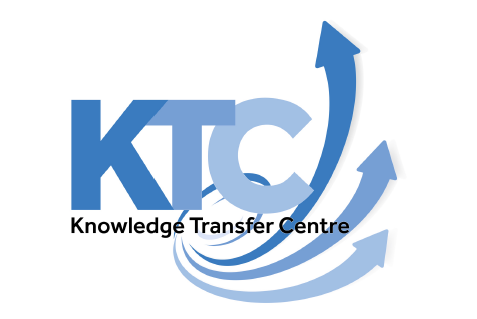The Knowledge Transfer Centre (KTC) is part of the Commercial Function and supports knowledge exchange (KE), commercialisation and commercial projects at the University. Following on from the appointment of William Kilgallon (Bill) as a Royal Society Entrepreneur in Residence (EiR) in the School of Chemistry, Food and Pharmacy, this article will look at the role of Intellectual Property (IP) in the process of knowledge translation and commercial application of research.

We caught up with Priti Purohit, the Intellectual Property Manager for the University based in the KTC to find out more:
“My role is to help identify and, where appropriate, protect intellectual property created by researchers at the University. IP is defined as the creations of the mind and can be for example, an invention, a music recording, a dramatic work, data, a script etc. IP is protected by IP rights, namely: patents, trademarks, copyright, database rights, trade secrets and know how.
“Identifying and protecting IP is important as it is an asset of the University and can be bought, sold, or licensed to provide a revenue stream or other benefit to the University and staff. However, it is important to note that protecting IP is not necessarily about filing for example, a patent application, it is more about ensuring that we are not giving away potentially exploitable IP without considering the best route.
“I work alongside colleagues in the KTC, research services and the academic community to identify university-owned IP with commercial potential, we work together to consider the mechanism by which to protect, manage and/or commercialise that IP.
“This might include determining whether the University is free to carry out commercially focused research and to help to avoid third-party IP that might prevent the research. I am also involved in IP-related transactions which might be to licence or assign (sell), the IP to third parties who can then exploit the IP.
“There is a lot of great research being carried out at the University which might be generating potentially valuable IP.
“Working with our EiR, Bill Kilgallon, we will combine our skills and experience to support colleagues in identifying, managing, and considering the commercial potential of their IP. We will also be working together to address how we support the identification, development, and exploitation of IP at a university level.”
This article forms part of a series that highlighting the work of the KTC and the Entrepreneur in Residence scheme which will run throughout 2021. In previous articles we’ve looked at the Entrepreneur in Residence programme and the work of the KTC. If you’d like to find out more about the scheme or research commercialisation generally, please contact the KTC.
